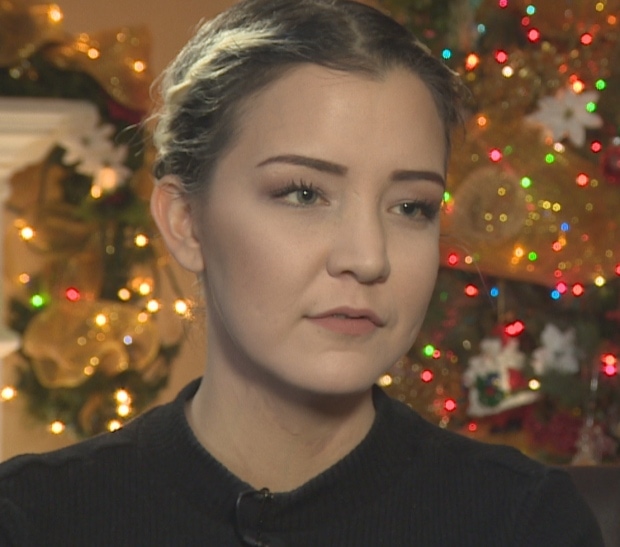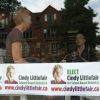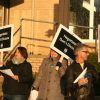KJIPUKTUK (Halifax) – I began speaking at universities, public schools and private events on missing and murdered Indigenous women and girls after my sister Loretta Saunders went missing and was found murdered in February of 2014.

Initially, the benefit of raising awareness far outweighed the pain of reliving my trauma. Sharing my wounds with others was and is effective in humanizing the issue of missing and murdered Indigenous women and girls, but I quickly found out how damaging it is to my healing. I still have difficulty rebounding after one or a series of public events, yet emotional labour is often not looked at as “real work.”
I have a deep respect for students who form alliances to educate those within their academic institutions when their chosen institution’s curriculum is severely lacking. My problem lies with the for-profit multi-billion-dollar industries/universities that penny pinch when a speaker provides expertise when their pricey textbooks fail to do so.
These institutions benefit greatly from Indigenous funding when Indigenous students choose to attend their institution. Many courses in these institutional bodies check boxes for being “indigenized” but students have expressed concern about the lack of depth in the curriculum.
I’ve met many amazing students, community members and fellow family members and loved ones of missing and murdered Indigenous women and girls during my travels. Many organizers are working voluntarily to spread awareness of contemporary issues that Indigenous peoples and non-Indigenous allies aim to resolve.
I’ve often shared how my family and I consider ourselves lucky to have the platform that we have. We received the highest level of justice Canada allows while there are families whom are denied something as essential as a missing persons report. It’s easy for someone in my position to feel a sense of responsibility when it comes to educating others on an issue that has been ignored for decades. It’s a difficult task to step away for self-care when you’re goaded to keep doing what you’re doing even if it is a re-traumatizing activity. This sense of obligation paves the way for exploitation of services by institutions and groups that devalue the knowledge they’re so hungry for.
I’ve reframed many of my presentations to focus on what I do to take a strength-based approach to trauma. It hasn’t been an easy road to be able to focus the pain, anger and grief on positive action or creative outlets, but it’s something I had to do to sustain myself. It wasn’t, and still isn’t easy to channel those negative forces into positive action and change, but it is possible. I feel that was important to share when also sharing a heavy burden such as the issue of missing and murdered Indigenous women and girls.
My own university, Saint Mary’s University, released an Aboriginal Student Task Force plan after the murder of my sister in which they acknowledged that they are “woefully behind” in creating a space or curriculum that is accessible and culturally competent for Indigenous students. It wasn’t until two years later, when I arrived as a mature student, that they began taking concrete steps in ensuring the plan was carried out. That was also the first year an Indigenous student, Hilary Edmunds, was able to ditch the cap and gown for her traditional Inuk regalia.
With the lack of meaningful Indigenization in the academy, professors and student organizers often look to people like me to provide information to students. I’ve educated students from K-12 and post-secondary institutions where the course content just wasn’t sufficient or those teaching the courses weren’t knowledgeable.
As I’ve gained more experience on the speaking circuit, I started using the services of a speaking agent who negotiates fair compensation, travel and accommodations.
However, I’ve decided to step away from public speaking indefinitely.
I’m not calling out any particular university, organization or group but the entire culture in the public speaking circuit that asks many to tear open wounds and share experience for crumbs without any real consideration for the service a speaker provides. Preparation isn’t only throwing a PowerPoint presentation together. Presenters and speakers are experts in their fields. Like myself, they’ve been fully dedicated and immersed in the subject or subjects they’re presenting.
It’s not a decision I arrived at with ease. It’s fulfilling and incites hope when I speak to the future of law enforcement, lawyers, doctors, decision makers and other members of a society that has held unwarranted pride in being fair and diverse. It does bring me hope that youth will carry us forward in a better way than those before them.
See also: Honouring Loretta’s passion. This year’s Loretta Saunders community scholarships awarded
If you can, please support the Nova Scotia Advocate so that it can continue to cover issues such as poverty, racism, exclusion, workers’ rights and the environment in Nova Scotia. A paywall is not an option, since it would exclude many readers who don’t have any disposable income at all. We rely entirely on one-time donations and a tiny but mighty group of dedicated monthly sustainers.



